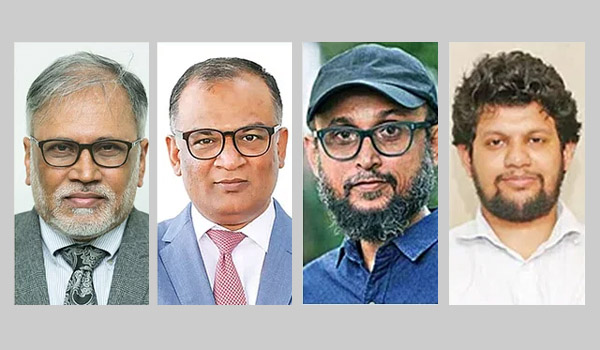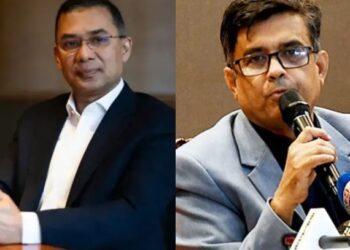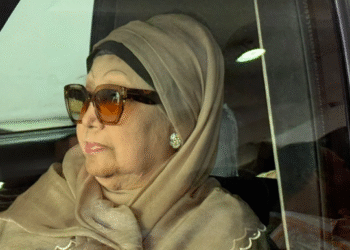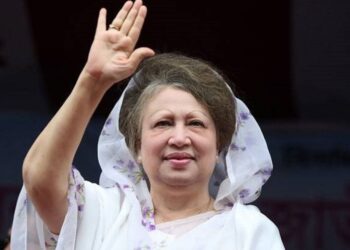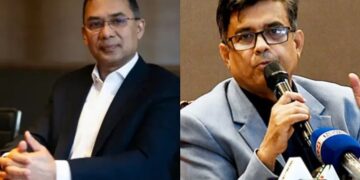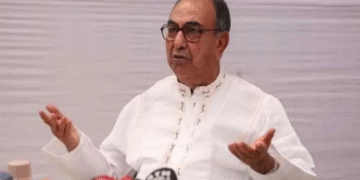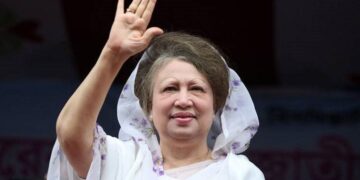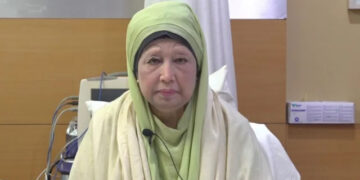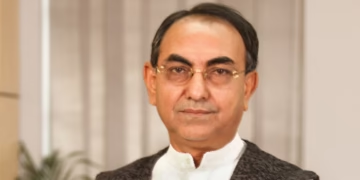Dhaka, November 10 — Dr. Muhammad Yunus has appointed five new advisors to his interim government, expanding the council to 21 members. These new appointments bring a wealth of experience from diverse fields, aiming to strengthen leadership as Bangladesh navigates this critical transition. The new advisors will be sworn in at Bangabhaban on Sunday evening, November 10, adding depth to the team managing essential government functions.
Mostofa Sarwar Farooki, one of Bangladesh’s most celebrated filmmakers. Known for his distinct and socially insightful storytelling, Farooki’s work has received both national and international acclaim. His appointment signals an emphasis on supporting the country’s cultural development and creative industries, which play a growing role in representing Bangladesh on the world stage.
Md. Sayedur Rahman, Vice-Chancellor of Bangabandhu Sheikh Mujib Medical University (BSMMU) and an authority in pharmacology. Appointed BSMMU Vice-Chancellor earlier this year, he brings a deep understanding of healthcare, pharmaceuticals, and medical research to the council. His expertise is expected to support policies aimed at strengthening healthcare infrastructure, improving public health initiatives, and ensuring access to quality medical care.
Sheikh Bashir Uddin, Managing Director of the prominent industrial conglomerate Akij-Bashir Group, also joins the advisory council. His experience as a business leader in one of the country’s largest private enterprises positions him well to contribute insights on economic growth, industrial expansion, and job creation. Under Bashir’s leadership, Akij-Bashir Group has expanded across multiple sectors, from manufacturing to agribusiness, making him a valuable asset as the government works to foster economic resilience.
Mahfuz Alam, previously Dr. Yunus’ Special Assistant, has been promoted to advisor. Known for his skill in managing government affairs, Alam is highly familiar with the operational needs of the interim government, and his appointment will help maintain cohesion and administrative efficiency within the advisory council.
The fifth advisor has yet to be confirmed, though two prominent figures are being considered. Khoda Bakhsh Chowdhury, former Inspector General of Police, has a long record of public service and experience in maintaining security and order, which could prove useful for national stability efforts. Alternatively, A.F.M. Solaiman Chowdhury, a former senior government official and recent leader in the Amar Bangladesh Party (AB Party), brings a wealth of experience in civil administration and policy-making. Either of these individuals would strengthen the advisory council’s ability to address complex governance issues.
Dr. Yunus initially took the role of Chief Advisor on August 8, following a wave of public support for an interim government to address social and political tensions. The current council now has 21 advisors overseeing essential ministries, many of whom manage multiple portfolios to ensure efficient governance. Dr. Yunus himself leads six ministries, including the Cabinet Division, Ministry of Defense, Armed Forces Division, Ministry of Food, Ministry of Public Administration, and the Ministry of Civil Aviation and Tourism.
Several other advisors have taken on multiple responsibilities to maintain coverage across all government sectors. Dr. Saleh Uddin Ahmed oversees Finance, Commerce, and Science and Technology, focusing on economic stability and innovation. Dr. Asif Nazrul directs Law, Justice, and Parliamentary Affairs, Expatriates’ Welfare and Overseas Employment, and Cultural Affairs, emphasizing legal affairs and support for overseas Bangladeshis.
Additional assignments include Muhammad Fawzul Kabir Khan, who is responsible for the Ministries of Power, Energy, and Mineral Resources, Road Transport and Bridges, and Railways. His leadership is pivotal in ensuring energy security and advancing infrastructure projects. Lt. Gen. (Retd.) Jahangir Alam Chowdhury manages the Ministries of Home Affairs and Agriculture, bringing expertise to public safety and food security. Hasan Arif handles Local Government, Rural Development and Cooperatives, and the Ministry of Land, aiming to improve rural livelihoods and land management.
Other advisors manage key areas such as social welfare, environmental protection, youth and labor development, and housing. For instance, Syeda Rizwana Hasan oversees the Ministry of Environment, Forest, and Climate Change, focusing on environmental sustainability, while Sharmin S. Morshed is responsible for Women and Children Affairs as well as Social Welfare.
These appointments reflect Dr. Yunus’s goal of forming a balanced and efficient government. By integrating leaders from healthcare, business, culture, and public administration, the interim government aims to build a comprehensive approach to policy-making that addresses both immediate and long-term needs.
As Bangladesh continues on its transitional path, the expanded advisory council, with its mix of expertise, is poised to stabilize the nation, foster economic growth, and advance public well-being. Through collaborative leadership, the council aims to guide the country toward a sustainable future, ensuring governance that prioritizes both stability and development for the people of Bangladesh.
Source: Rtv News

